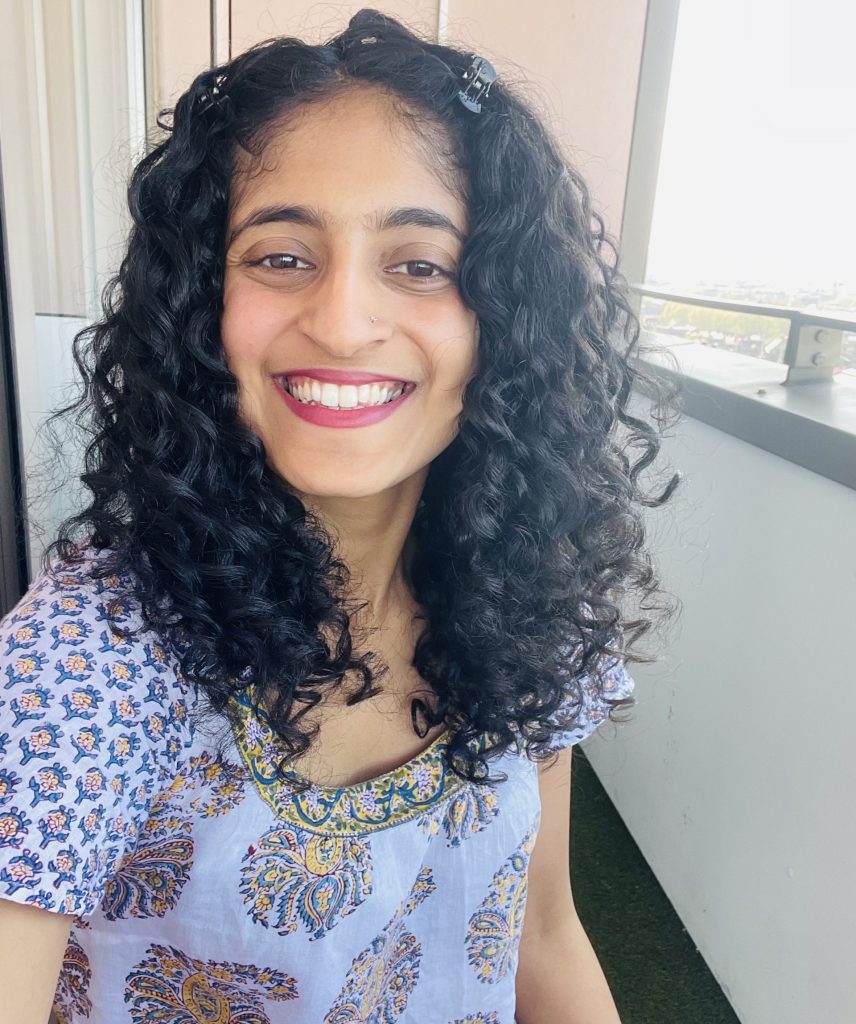Meet Our New Faculty | Gauri Pillai
September 20, 2022
We extend a warm welcome to our latest faculty member Gauri Pillai who has joined us as Assistant Professor of Law. Gauri researches, writes and teaches on comparative constitutional law, discrimination law, human rights law and reproductive rights and justice. Previously, she was a Graduate Teaching Assistant for Human Rights with the Oxford Law Faculty, involved with teaching both undergraduates (Human Rights Law) and postgraduates (Comparative Human Rights Law and Comparative Equality Law on the Bachelor of Civil Law). Starting next term, she will be teaching Constitutional Law in the BA LLB (Hons) programme at our University.
In this interview, she shares more about her interests and her work.
 1. Can you tell us more about yourself?
1. Can you tell us more about yourself?
I graduated with a BA LLB (Hons.) from the National University of Juridical Sciences Kolkata. I then read for a Bachelor of Civil Law at the University of Oxford, on a Rhodes Scholarship. I am now finishing up the Doctor of Philosophy (Law) at Oxford, where I was awarded the Alaine Locke Studentship by Hertford College. My Thesis is titled ‘Reproductive Rights in India: The Search for a ‘New’ Constitutional Home’. In my doctoral research, I interrogate the current constitutional framing on reproductive rights in India, set against the context of a global moment where the very existence of these rights seems to be in question.
I am also an Assistant Editor of the Indian Law Review, Managing Editor of the Oxford Human Rights Hub Blog and Podcast Host with #RightsUp. I was Co-convener of the Oxford Pro Bono Publico (2018-19) and Editor at the NUJS Law Review (2016-17).
Outside the world of law and academia, I enjoy reading, sharing time with those I love, and going on long walks and runs. I am now trying to pause more (in my work and outside of it), learn through experience and immersion, and be intentional about how I spend my time.
2. What are your main areas of interest and teaching? How did your interest in these areas begin?
Broadly, I am interested in teaching constitutional law through a comparative lens. I have worked on, and taught, different aspects of constitutional law, including discrimination law, human rights law, and feminist constitutionalism. My interest in constitutional law began with a recognition of the profound power of the constitutional project, and its inherent limitations. As the highest statement of law domestically, constitutions possess the potential to radically shape a nation’s legal environment. There are, then, high-stakes choices to be made in constitutional design. At the same time, there is an urgent need to acknowledge how far the constitutional project can actually take us, contesting simplistic narratives about rights as agents of social transformation and courts as its messiahs. Through my teaching and work I’d like contribute to the building, and practice, of a more self-aware approach to constitutional law.
3. Your thoughts on starting your teaching journey at NLS? What are your plans ahead?
I am excited to begin my time at NLS at a moment when the university is envisioning significant changes to the model of legal education it seeks to impart. During my time here, I hope to both learn and teach. Learn from those whose journey in university spaces began much before mine. Learn also from the classroom, where I hope to cultivate curiosity and rigour. And teach, not just constitutional doctrine, but also methods of thinking about the law, doing research on it, and writing about it.
4. Could you highlight any previous or current projects/publications of yours?
- ‘Shades of Life in Indian Abortion Law’ (2022) 16(1) National Law School Journal
- ‘Developing the Bounds of Bounded Deliberation: Standard of Review, Positive Duties, and Socio-Economic Rights in India (forthcoming)
- ‘A Continuing Constitutional Conversation: Locating Nitisha’ (2022) 22(1) International Journal of Discrimination and the Law 87-101

